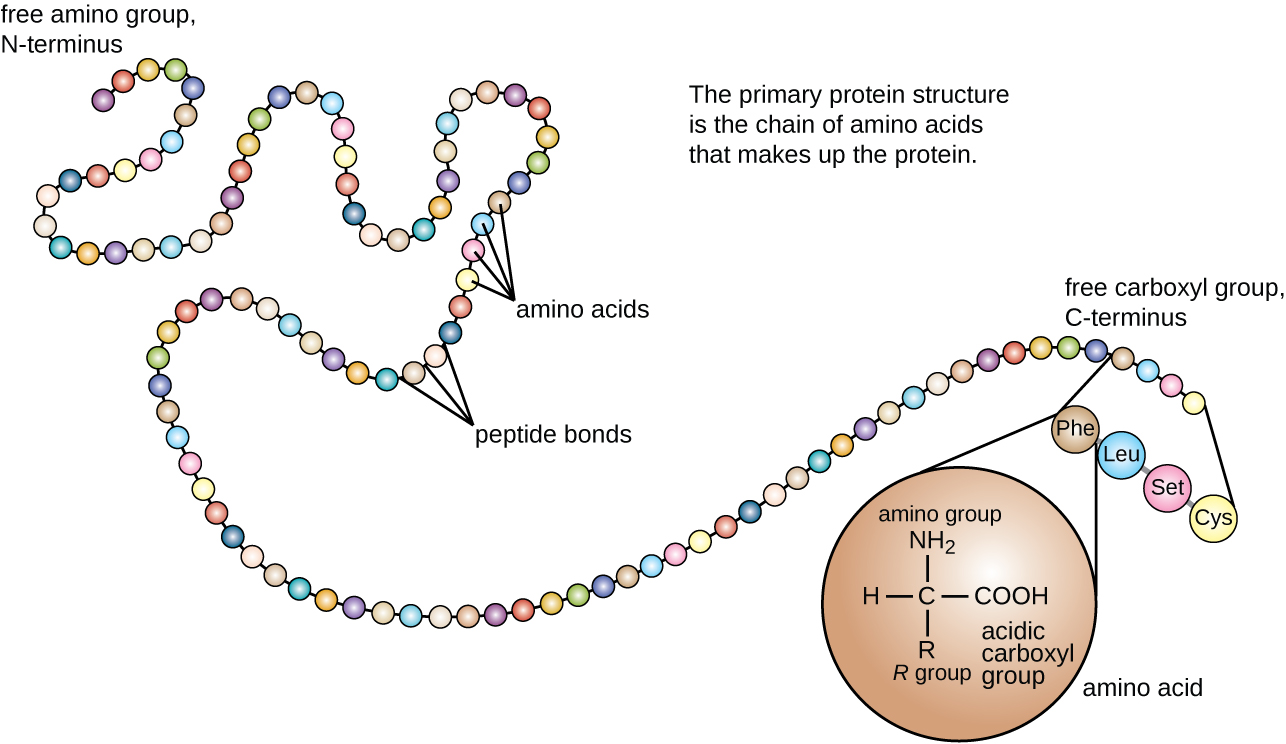
Amino acids are the building blocks of DNA? True or false?
Answer
479.1k+ views
Hint: Amino acids are organic compounds containing functional amino and carboxylate groups together with a side chain of each amino acid. Carbon, hydrogen, oxygen, and nitrogen are key elements of amino acids, although there are other elements found in some amino acid side chains.
Complete answer:
Amino acids are protein-building blocks and play a key role in body functions. Amino acids are protein-building blocks and play a major role in body functions. It is necessary for the construction and synthesis of hormones and neurotransmitters in vital processes (brain chemicals).
The statement above is false because nucleotides are the components of DNA molecules. The building blocks of proteins are amino acids. The building blocks of proteins are amino acids.
Nucleotides consisting of sugar deoxyribose, one phosphate group, and one of four nitrogen bases are building blocks of DNA; adenine (A), guanine (G), cytosine (C), and thymine (T). The sequence of the genetic sequence in these building blocks in a DNA molecule. These genes are the instructions to produce particular proteins and other genetic elements.

DNA consists of two nucleotide strands of DNA. Each strand consists of a backbone of molecules of sugar-phosphate, which are also connected to the sugar molecule with nitrogen bases. Both strands are linked to complementary nitrogen bases by hydrogen bonds A: T and C: G. Both strands form a twisted ladder that is a double-helical structure.

Note:
Our organism can synthesize a few out of 20 amino acids by itself and is known as non-essential amino acids. Alanine, asparagine, arginine, aspartic acid, glutamic acid, cysteine, proline, proline, serine, and tyrosine are included. Besides these, 9 other amino acids are very important as they cannot be synthesized by our body. They are essential. They include isoleucine, histidine, lysine, leucine, phenylalanine, tryptophan, methionine, threonine, valine, and are known as essential amino acids.
Complete answer:
Amino acids are protein-building blocks and play a key role in body functions. Amino acids are protein-building blocks and play a major role in body functions. It is necessary for the construction and synthesis of hormones and neurotransmitters in vital processes (brain chemicals).
The statement above is false because nucleotides are the components of DNA molecules. The building blocks of proteins are amino acids. The building blocks of proteins are amino acids.
Nucleotides consisting of sugar deoxyribose, one phosphate group, and one of four nitrogen bases are building blocks of DNA; adenine (A), guanine (G), cytosine (C), and thymine (T). The sequence of the genetic sequence in these building blocks in a DNA molecule. These genes are the instructions to produce particular proteins and other genetic elements.

DNA consists of two nucleotide strands of DNA. Each strand consists of a backbone of molecules of sugar-phosphate, which are also connected to the sugar molecule with nitrogen bases. Both strands are linked to complementary nitrogen bases by hydrogen bonds A: T and C: G. Both strands form a twisted ladder that is a double-helical structure.

Note:
Our organism can synthesize a few out of 20 amino acids by itself and is known as non-essential amino acids. Alanine, asparagine, arginine, aspartic acid, glutamic acid, cysteine, proline, proline, serine, and tyrosine are included. Besides these, 9 other amino acids are very important as they cannot be synthesized by our body. They are essential. They include isoleucine, histidine, lysine, leucine, phenylalanine, tryptophan, methionine, threonine, valine, and are known as essential amino acids.
Recently Updated Pages
Master Class 12 Economics: Engaging Questions & Answers for Success

Master Class 12 Physics: Engaging Questions & Answers for Success

Master Class 12 English: Engaging Questions & Answers for Success

Master Class 12 Social Science: Engaging Questions & Answers for Success

Master Class 12 Maths: Engaging Questions & Answers for Success

Master Class 12 Business Studies: Engaging Questions & Answers for Success

Trending doubts
Which are the Top 10 Largest Countries of the World?

What are the major means of transport Explain each class 12 social science CBSE

Draw a labelled sketch of the human eye class 12 physics CBSE

Why cannot DNA pass through cell membranes class 12 biology CBSE

Differentiate between insitu conservation and exsitu class 12 biology CBSE

Draw a neat and well labeled diagram of TS of ovary class 12 biology CBSE




